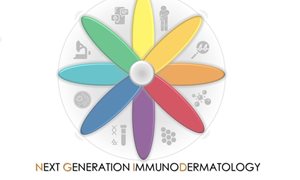21 February 2019
His main interest was in keratinocyte biology and inflammatory skin diseases such as psoriasis and atopic dermatitis. His group aimed to translate basic science to applications in the treatment of human diseases. In addition, he also performed research outside the Dermatology field. In addition to topics such as connective tissue diseases and malaria, Joost has always embraced new techniques. His department was the first in The Netherlands to do serial analysis of gene expression and made a "skin chip". In Europe he was also the first to publish about the human skin microbiome.
In all those years, Joost has contributed to more than 300 scientific publications in many different professional journals with a broad spectrum of subjects, including some publications in high impact journals such as Nature Genetics and The New England Journal of Medicine. Furthermore his oeuvre is mainly characterized by many publications in well-quoted journals that are known for their solid research, such as The Journal of Biological Chemistry, The Journal of Clinical Investigation, The American Journal of Human Genetics and The Journal of Investigative Dermatology.
Joost has made significant contributions to the further development of the RIMLS by being instrumental as coach in the grant writing process of ample researchers, and he has been an active member of several committees and contributed to the MMD programme.
We thank Joost wholeheartedly for his seminal contributions to science and education, and his dedication to the local, national and international academic community. We wish him all the best for the future to come.

Joost at the mini symposium on 15 February 2019. His own lecture was about research outside the Dermatology field: the importance of non-project-related research.
 With a mini symposium (‘Oppervlakkig en toch diepgaand’) and reception a passionate researcher of the RIMLS said farewell. After 36 working years Joost Schalkwijk, theme Inflammatory diseases, will enjoy his retirement.
With a mini symposium (‘Oppervlakkig en toch diepgaand’) and reception a passionate researcher of the RIMLS said farewell. After 36 working years Joost Schalkwijk, theme Inflammatory diseases, will enjoy his retirement.
His main interest was in keratinocyte biology and inflammatory skin diseases such as psoriasis and atopic dermatitis. His group aimed to translate basic science to applications in the treatment of human diseases. In addition, he also performed research outside the Dermatology field. In addition to topics such as connective tissue diseases and malaria, Joost has always embraced new techniques. His department was the first in The Netherlands to do serial analysis of gene expression and made a "skin chip". In Europe he was also the first to publish about the human skin microbiome.
In all those years, Joost has contributed to more than 300 scientific publications in many different professional journals with a broad spectrum of subjects, including some publications in high impact journals such as Nature Genetics and The New England Journal of Medicine. Furthermore his oeuvre is mainly characterized by many publications in well-quoted journals that are known for their solid research, such as The Journal of Biological Chemistry, The Journal of Clinical Investigation, The American Journal of Human Genetics and The Journal of Investigative Dermatology.
Joost has made significant contributions to the further development of the RIMLS by being instrumental as coach in the grant writing process of ample researchers, and he has been an active member of several committees and contributed to the MMD programme.
We thank Joost wholeheartedly for his seminal contributions to science and education, and his dedication to the local, national and international academic community. We wish him all the best for the future to come.
Joost at the mini symposium on 15 February 2019. His own lecture was about research outside the Dermatology field: the importance of non-project-related research.
Related news items

Large NWA ORC grant awarded for national skin research: Next Generation ImmunoDermatology
23 March 2022Research for better treatment methods for chronic skin diseases.
go to page
Best publication award of 2019 in dermatology awarded to Jos Smits and Tom Ederveen
30 September 2020The Dutch Society for Experimental Dermatology (NVED) awarded the publication in Journal of Investigative Dermatology of Jos Smits and Tom Ederveen.
go to page
A personal touch of Hanna Niehues
5 May 2019 In order to promote interaction amongst colleagues within RIMLS, we have a ‘personal touch’ series setting employees in the spotlight. A light-hearted manner to learn about the colleagues you know and those you don’t. This week: Hanna Niehues. go to page
EU funded project BIOMAP led by Ellen van den Bogaard
12 April 2019 Ellen van den Bogaard, theme Inflammatory diseases, leads the research on the experimental validation and functional analysis of identified biomarkers by using advanced organotypic skin models and receives a grant of €258,000. go to page
LEO Foundation grant for Ellen van den Bogaard and Patrick Zeeuwen
17 January 2019 LEO Foundation ‘Open competition grants’ are given to support the best dermatology research projects worldwide that improve the understanding of the underlying medicinal, biological, chemical, or pharmacological mechanisms of dermatological diseases and their symptoms. go to page
